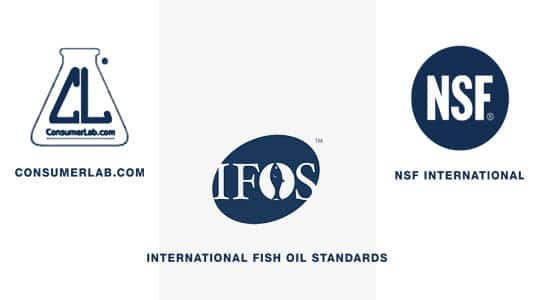
How to Choose Quality Supplements
How to Choose Quality Supplements
About the Author
Dr. Michael A. Smith received his medical doctorate from the University of Texas, Southwestern Medical Center, and he practiced Internal Medicine and Radiology in Dallas, Texas in the early 2000s. Dr. Smith is the author of The Supplement Pyramid: How to Build your Personalized Nutritional Regimen. He is also the host of Live Foreverish, a podcast and the Facebook Live show for Life Extension.
We all want to live healthier. Like drinking more water and getting enough sleep, adding nutritional supplements to your daily routine is an important part of staying well. But with so many choices out there, how can you know which ones to take?
High-quality formulas are more likely to give you the health benefits you’re looking for—and this guide will show you how to separate the good stuff from the rest of the pack.
Step 1: Safety First
When you ingest a product, nothing is more important than knowing that it is safe. Make sure you can check every box on this safety checklist before you purchase:
- Data check: You should be able to verify that safety data exists for every ingredient on the supplement’s label. This ensures you’re not consuming unsafe or unknown substances.
- Quality control: A supplement manufacturer should apply an extensive qualification process for raw materials (and the vendors of those raw materials) before it ever gets to you.
Here’s what should happen: Before starting the manufacturing process, a reputable supplement company will test raw materials for purity—or have them tested by a reliable third party.
Those testing methods include advanced analytical techniques like liquid chromatography, gas chromatography and mass spectrometry.
These methods help ensure the potency, purity, strength and composition of a supplement’s ingredients.
- Good Manufacturing Practices (GMPs): Good Manufacturing Practices (GMPs) are guidelines that provide a system of processes, procedures and documentation to assure a product has the identity, strength, composition, quality and purity that appears on its label.
GMP regulations establish guidelines for dietary supplement companies to follow during the manufacturing process, including (but not limited to) facility cleanliness, accurate record retention and waste disposal.
- GMP Registration: Companies who want to build trust with their consumers can become GMP-registered. This requires submitting to regular audits by an independent organization, such as National Sanitation Foundation (NSF) International. Independent registration from a global public health organization like NSF demonstrates a commitment to dietary supplement quality and compliance with U.S. GMP requirements.
No time to read the rest?
Enter your email below to download this guide as a FREE eBook.
Step 2: But Does It Work?
Once you’re confident a supplement is safe, it’s time to determine if it will produce the desired results. How do you know whether your formula will be effective?
The supplement company should be able to explain:
- Why were the ingredients and dosages chosen?
A reputable supplement company can tell you why the ingredients and dosages listed on the label were chosen. For example, did a clinical study demonstrate that certain levels of a specific nutrient were beneficial?
- What role do these ingredients play in achieving the stated health goals?
If you’re not able to find this information on the product packaging or online in the product description, reach out for details.
- Is there science-based research demonstrating the product’s effectiveness?
Be skeptical of any supplement brand that can’t provide detailed information about why and how their products work. Reputable manufacturers will base their dosages and ingredients on scientific studies—and publish the references within their marketing materials.
Step 3: Seek Validation
There is always a risk that products are labeled deceptively. Do your own due diligence before you buy into the hype. Fortunately, reputable supplement companies make doing your homework easy.
Third-Party Programs: There are a number of registration programs that evaluate dietary supplement production, assessing everything from good quality assurance practices to facility sanitation.
Some of the most rigorous programs include:
- ConsumerLab.com: The mission of ConsumerLab.com is to help consumers and healthcare professionals identify the highest quality health and nutrition products.
ConsumerLab.com doesn’t just test supplements. They also conduct an annual survey of consumers who take vitamins and supplements. The results of this survey will give you a better idea of which products are meeting the needs of your peers to their satisfaction.
- NSF International: Remember Good Manufacturing Practices, or GMPs? NSF International independently registers manufacturers as meeting GMP requirements.
What Does It Take To Be NSF GMP Registered?
NSF GMP registration verifies that the facility is regularly audited for quality and safety in compliance with federal regulations for dietary supplement good manufacturing practices, including:
- Audits of all production facilities that manufacture, package, warehouse or distribute dietary supplements or functional foods
- Review of quality control testing procedures for raw materials and finished products
- Review of maintenance, housekeeping, cleaning and sanitization procedures
- Review of sourcing and traceability procedures
- Review of training and qualification programs
- Review of internal standard operating procedures (SOPs)
- Product Recall Procedures
- IFOS™: Short for International Fish Oil Standards, IFOS™ focuses entirely on Omega-3 fish oil supplements. If a fish oil supplement bears the IFOS™ 5-Star rating, the fish oil in that formula meets the highest standards for quality and purity.
Step 4: Testing, 1, 2, 3…
Supplements should go through three types of tests to assure quality. Make sure any supplement you purchase has been vetted for:
- Raw materials. A reputable supplement company should regularly utilize laboratory testing (either in-house or from a reputable third-party) to analyze the raw materials used in their formulations, checking for ingredient quality, potency and purity.
- Manufacturing process. Companies should be in strict compliance with Good Manufacturing Practices (GMP), and not just for production—packaging and storage are equally important.
- Final product. The last stage of testing is to analyze the final product. A representative of every batch of supplements should be tested to ensure it meets expected specifications regarding purity, composition and potency.
Step 5: You’d Better Shop Around
Whether you’re browsing the shelves of a local health food store or shopping online from the comfort of your couch, look at the following three criteria:
Clear, easy-to-read label: Supplement labels should be legible, with a clear breakdown of active and inactive ingredients.
Evidence of testing: It should be easy to access the testing methods used on your product of choice. The supplement company should be able to provide a Certificate of Analysis (COA).
This document, issued by the manufacturer, confirms the product meets specification, and may also include the actual results obtained from testing performed as part of the quality control of an individual product batch.
Research references: It’s important that the claimed benefits of a supplement can be backed by science. When you are looking at a supplement online, the product page should provide a clear listing of studies used to substantiate any claims made on behalf of the supplement.
Final Thoughts
The supplement market can be tough to navigate, but if you’re an educated consumer, it’s not hard to find the highest quality supplements your body deserves.
Now that you know what to look for, you can feel confident that you’re making the right choices.
Have a health or supplement question?
We have the answers... You can speak with a Life Extension Wellness Specialist toll-free at 1-800-226-2370. This informational service is staffed by doctors, nurses, and other health practitioners and is free.
References
- National Sanitation Foundation, https://www.nsf.org/
- ConsumerLab.com, https://www.consumerlab.com/
- IFOS (International Fish Oil Standards) Certifications by Nutrasource, https://certifications.nutrasource.ca/about/how-certifications-work/ifos

What Are Non-GMO Supplements? All You Need to Know
Feeling confused about non-GMO, GMO-free, and organic labels? We’ve got you covered. Here’s everything you need to know about non-GMO supplements.

Vegan Supplements: A Buyer’s Guide
What are vegan supplements? And, are they better than traditional supplements? Read on to learn more about the buzz around vegan supplements—plus, how to choose a vegan supplement that’s right for you.

3 Big Mistakes Supplement Users Make
Follow these supplement guide to avoid the top 3 common mistakes, newbies make when starting their supplement intake.






